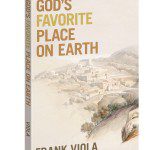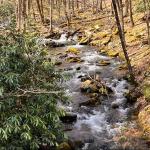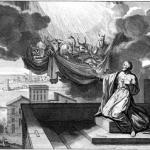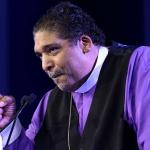 Lectionary Reflections on Pentecost
Lectionary Reflections on Pentecost
May 19, 2013
Acts 2:1-21
Psalm 104:24-34
Romans 8:14-17
John 17:8-17, 25-27
It’s amazing, as the words of Acts 2 proclaim, that progressive and moderate Christianity is rediscovering the Holy Spirit. Long neglected by liberal rationalism, the Spirit was primarily the province of Pentecostal and charismatic Christians, often marginalized by the description “holy rollers.” Congregations are learning about meditation, reiki healing touch, mysticism, and laying on of hands. Spirit-centered Christianity is on the move and moderate and progressive Christians are discovering that the Spirit is far from an appendage in early Christianity; it is the movement of God within our lives and communities enabling us to experience Jesus’ ministry as real, personal, and contemporary. The Spirit is alive today. The Spirit’s movements enable us to access higher and deeper dimensions of reality and experience both subtle and dramatic energies that transform both spirit and flesh. (For more on the gifts of the spirit in healing and mysticism, see my Healing Marks: Healing and Spirituality in Mark’s Gospel and Reiki Healing Touch and the Way of Jesus.)
When the Spirit manifested herself at Pentecost, Jesus’ first followers were, I suspect, as amazed as the multitudes who heard their message. They had experienced Jesus’ unity with God as a source of life-transforming power, but many of his followers may have believed that this power belonged to Jesus alone and could only be experienced as dilute in the post-resurrection world.
In a recent seminary class, I asked my students how they would respond if they experienced God’s mighty wind and fiery presence. They responded with phrases like: “I would duck under the pew,” “I’d flee the sanctuary,” “I’d faint,” and “I’d go with the flow.” Needless to say, we seldom need to take Annie Dillard’s counsel to lash ourselves to our pews and put on crash helmets on Pentecost or any other Sunday at church. But, what if we encountered the wildness of God’s Spirit, awakening, energizing, and enlightening? What if we felt God speaking in our words and thoughts, or experienced our hearts and bodies strangely warmed in an unexpected, but lively and healthy way?
On Pentecost, mysticism – and this is a communal as well as individual mysticism – inspires the community to mission. Good news can’t be sequestered or kept to ourselves. Spirit bursts forth. The first Christians are driven to the streets, sharing good news, speaking in unfamiliar voices and being heard across culture and ethnicity. Everyone gets the message. Diversity is no longer an impediment to unity but precisely the vehicle for the Spirit’s movements. Medes and Parthians remain Medes and Parthians; there is no need to sacrifice the gifts of their cultures. But, each culture’s gifts become part of a rainbow kaleidoscope, reflecting God’s delight in a diversity that deepens our experiences of unity and solidarity.
Peter’s extemporaneous invocation of the prophet Joel expresses more than the apostle himself can fathom. He takes on the mantle of prophet (nabi) speaking for God, inspired by God, and ecstatically taken beyond his ego to a global experience of unity with all creation. Peter’s speech is universalist in both epistemology and soteriology, to use the words of theologians; that is, everyone can experience God and all are invited to healing and salvation. Still, even here, there is no one path to experiencing God: some dream, others see visions, still others ecstatically share God’s wisdom. No age, sexual, or economic community is left out of in this lively democracy of the spirit. No Calvinist, separating sheep and goats, elect and reprobate before creation, Peter’s Wesleyan/Universalist spirit invites all to say “yes” in the dynamic call and response of God and humankind. And in a time of theological polarization and exclusion, that’s amazing.
Psalm 104 describes a creation-affirming wisdom theology. The author is inspired by creation in all its manifold diversity, but more than that all creatures bear God’s wisdom and creativity and embody that creativity in the pleasure they experience swimming flying, running, hunting, and eating. God’s creative Sophia-spirit gives life, breath, and energy to all creation. Filled with this vision of divine companionship and creativity, the Psalmist is filled with joy and delight.
The words of Romans 8, spoken to both individuals and communities, remind us that our tepid congregations can become open-spirited, open-sourced, and open-hearted communities of healers and mystics. God’s Spirit speaks “Abba, Father” and “Amma, Mother,” within us. In experiencing God’s sighs too deep for words, we are enlivened and encouraged. Experiencing God’s Spirit launches us into new adventures. We experience ourselves as truly loved and sustained and need not fall into timidity or fearfulness. We can push the limits of our comfort zones, imagine new possibilities and then embody these possibilities in daily life, because the Spirit inspires and energizes us as persons and communities. Our congregations don’t need to be afraid of change – or standing up against the evils of our day – for Spirit is with us.
Jesus’ words from John 14 speak to both persons and communities. “I am in the Father and the Father is in me.” Jesus and God share an intimate Spirit. God’s Wisdom enlightens Jesus moment by moment, shaping his personality and awakening him to power to heal and transform. This power, however, is not restricted to Jesus: in the spirit of Jesus’ description of vines and branches, we can affirm the presence of divine energies flowing through us. Connected to the vine, we will bear more fruit than we can imagine. “God in all things and all things in God.” that’s amazing and empowering.
Jesus’ words of promise reflect the spirit of a non-competitive God. God does not want us to play small or be subservient, even to God. We don’t bow down as slaves (Romans 8) but standup as children and heirs who can make great plans and then seek to incarnate them. “Greater things” are possible for us when we “ask in Jesus’ name” and in alignment with God’s creative wisdom. We are not alone in our quest for abundant life – this is the quest of God for all creation and we can become messengers and manifestations of God’s creative love. While God’s Spirit is universal and everlasting, energizing human and non-human life, Jesus promises his followers that they can palpably experience the Creative Wisdom that brings worlds into being. We can partake in the same wise energy that characterized Jesus’ ministry. In so doing, we can face challenge and resistance with courage and steadfastness, and that is amazing to us and the world.















